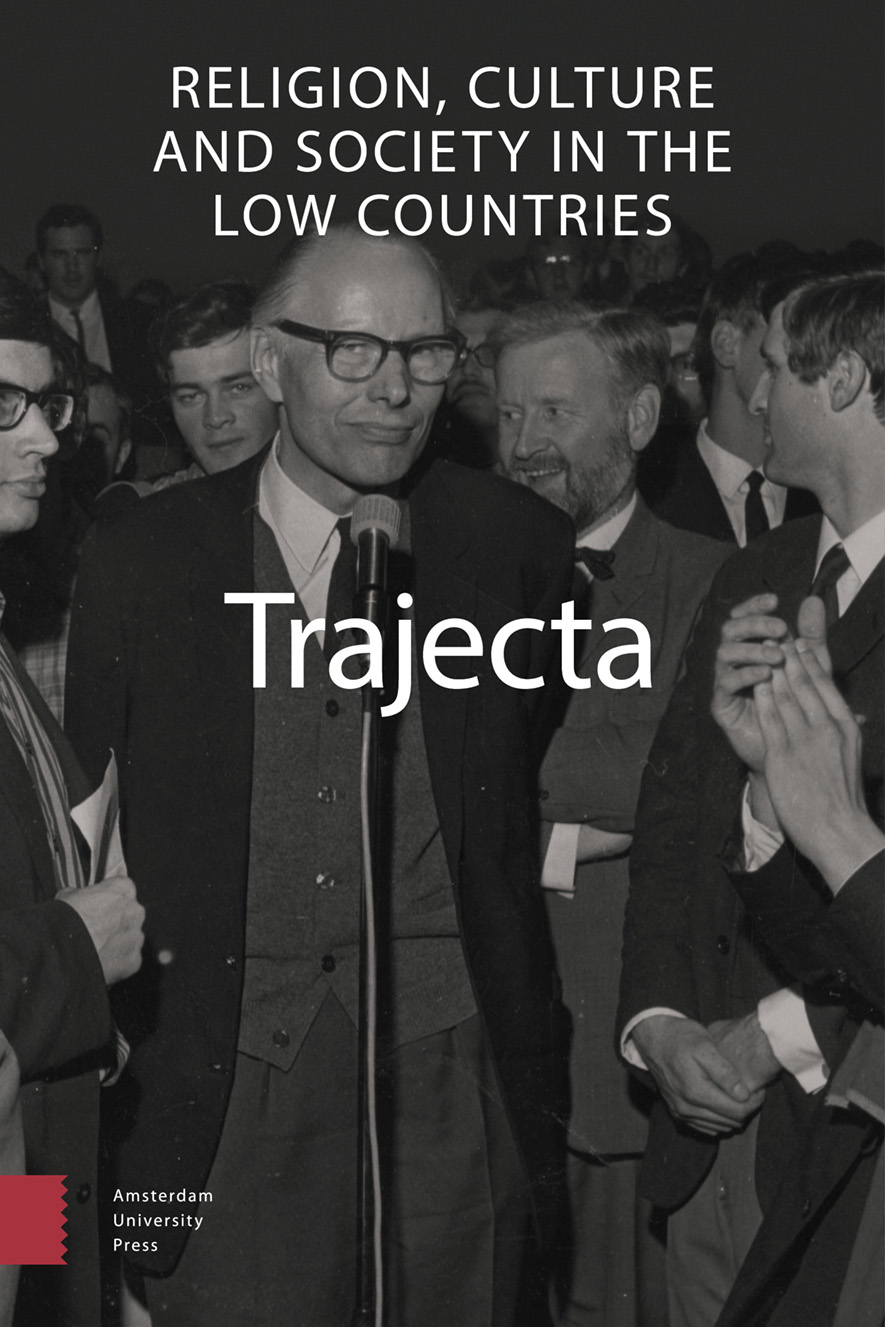- Home
- A-Z Publications
- Trajecta
- Previous Issues
- Volume 32, Issue 1, 2024
Trajecta - Volume 32, Issue 1, 2024
Volume 32, Issue 1, 2024
Language:
English
- Article
-
-
-
oa The European Discourse of Geldmacht: Anti-Capitalism, Stereotypes of Jews, and Abraham Kuyper, 1844–1911
More LessAbstract This article explores the circulation and evolution of the European discourse of geldmacht (‘money power’) from 1840 until 1911. During this period, a variety of thinkers used the notion of geldmacht to express opposing arguments. Academics used the word geldmacht to capture the power of finance, while activists across the political spectrum used the same notion to offer social critique and voice co Read More
-
-
-
-
oa For peace, justice, and the integrity of creation
More LessAuthors: Peter van Dam & Daan Theodorus SandersAbstract The Conciliar Process was a transnational campaign initiated by churches throughout the world, adhorting Christians to consider their responsibility for global justice, peace, and the environment. This article analyses the trajectory of this campaign, also known as the campaign for Justice, Peace and the integrity of Creation (JPIC), as it unfolded between 1987 and 1992. If focuses primarily on its evolution in the Neth Read More
-
-
-
oa The ambiguous legal position of ‘native Christians’ in the Dutch East Indies in the nineteenth century
More LessAuthors: Bart Verheijen & Rowin JansenAbstract In the nineteenth-century colonial Dutch East Indies, a legal distinction existed between different population groups. This article examines the implications of this so-called ‘legal dualism’ by focusing on a specific group: the ‘native Christians’. These Indonesians converted to Christianity, who some politicians believed had become to a certain extent ‘European’, may have been a small group, but they challenged legal pige Read More
-
- Artikel
-
-
-
oa ‘Er zijn onder ons naast vurige deïsten ook complete atheïsten die zielsrust putten uit de ontkenning van God’
More LessAbstract De bakermat van de vrijdenkersbeweging in België ligt in Brussel toen daar tijdens de jaren 1850 en 1860 de eerste vrijdenkersverenigingen werden opgericht. Het veelvormige ongeloof van de Brusselse vrijdenkers die bij deze verenigingen betrokken waren had verschillende morele dimensies. Het antiklerikalisme dat aan de basis lag van de eerste vrijdenkersverenigingen die als begraf Read More
-
-
Most Read This Month
Article
content/journals/07788304
Journal
10
5
false
en

Most Cited Most Cited RSS feed
-
-
oa Odd Bedfellows, New Alliances
Authors: Markus Balkenhol & Ernst van den Hemel
-
- More Less

